Central African Republic
Under the very close guard of Russian mercenaries and Rwandan peacekeepers, the president of the Central African Republic, Faustin Archange Touadéra, is clearly enjoying waving to the crowds in Bangui.
Elected by surprise in the midst of civil war in 2016, this professor of pure mathematics, a graduate of the University of Lille in France, has transformed himself in seven years from a somewhat timid technocrat promising to restore peace into a confident head of state.
At the age of 66, the man who was Prime Minister under President François Bozizé from 2008 to 2013 is clinging on to power. His detractors call him "President Wagner", after the private Russian company that supports his regime.
Following Monday's announcement that a new constitution had been approved in a referendum - by an overwhelming majority - Mr Touadéra now has the opportunity to run for a third term at the head of the country in 2025, something he was not allowed to do under the old fundamental law, and despite sharp criticism from his opponents who accuse him of wanting to remain "president for life".
If he is re-elected in two years' time, he could reach 16 years in power in the Central African Republic, one of the poorest countries in the world.
"FAT", as he is nicknamed, appears isolated on the international stage, accused by the UN, international NGOs and Western chancelleries of having traded the survival of his regime and a relative "peace" for his country's meagre wealth, particularly in gold and diamonds, exploited by Russian companies linked to Wagner, while the Central African Republic is on a drip-feed of international aid.
His fragile regime, threatened by a rebellion and saved from chaos by the massive intervention of Russian mercenaries in 2020, makes him appear at best a "prisoner" of foreigners, at worst a "hostage" of Wagner's "predatory Russian mercenaries".It was in the latter terms that French President Emmanuel Macron denounced him in May 2021. The former colonial power has lost most of the military and economic influence it wielded in the Central African Republic since independence in 1960, to Moscow.
- Predation -
Since 2020, guerrilla warfare in the countryside has continued, and the UN and NGOs regularly accuse Russian rebels, soldiers and mercenaries of committing crimes against civilians, a scourge that the UN peacekeeping force on the ground (Minusca) has been unable to curb.
For his supporters, Mr Touadéra is nonetheless regarded as the "man of peace". They are grateful to him for having restored security over a large part of the country, and for having concluded an agreement in 2019 in Khartoum with 14 armed groups, integrating their leaders and cadres into the government or administration, in return for their support and the disarmament of their militias.
However, from the start of his first term in office, FAT had to deal with the various clans and movements of all those who rallied behind him in the second round in order to form a majority in the National Assembly.It was only in 2018 that he managed to unite them by creating his Mouvement Coeurs Unis (MCU).
For others, he has brought many wolves into the fold and now finds himself the prisoner of certain warlords who are very close to the Russians or "in business" with them in certain provinces. All of which adds to the feeling of predation as the state coffers empty.
- Embargo -
His regime argues that the international community left it no choice. The UN had imposed a strict arms embargo on the country, despite the fact that the rebels are easily supplied in the region, before relaxing it on 27 July by excluding arms intended for government forces. This decision was seen as an "affront" by Bangui, which was calling for the embargo to be lifted completely, with the support of China and Russia.
Before Wagner acted as if he were on conquered ground in the capital or in the mineral-rich regions, Mr Touadéra, a native of Damara, 60 km north of Bangui, enjoyed a certain popularity in the international community, having courageously taken the helm of a failed state and a country ravaged by war.
But feeling "abandoned", he eventually turned to Moscow and became a political animal, according to some experts in the region. For them, alternately impassive and smiling, Mr Touadéra wields duality as his main political weapon.
"His brand of governance is to say yes to everyone without making any public decisions", says Charles Bouessel, senior consultant for the International Crisis Group (ICG) think-tank.



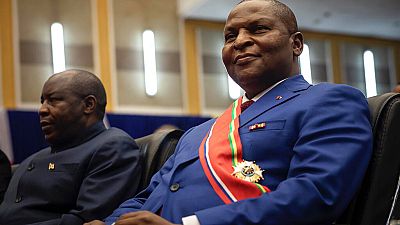

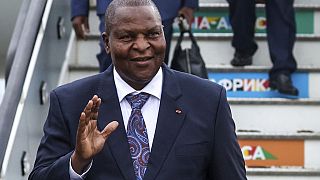
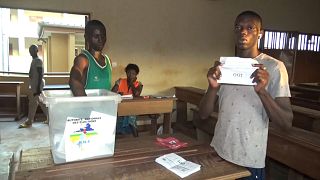
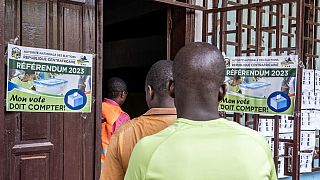
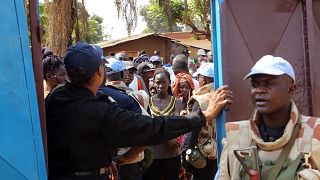
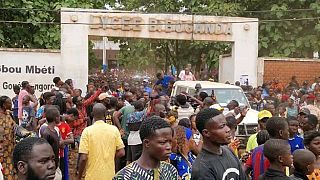
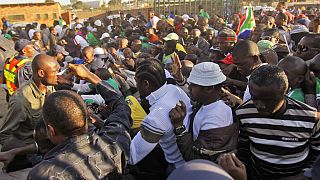



01:07
Only 35% of sustainable development goals on track to meet target, UN says
01:07
UN-Russia agricultural export memorandum will not be extended
Go to video
ICC warns of a dire humanitarian crisis in Sudan as the war rages on
02:06
UN report reveals 4.6 million people struggling with food insecurity
01:22
World will have to learn to live with heatwaves, UN says
01:39
Sustainable development financing conference opens in Seville